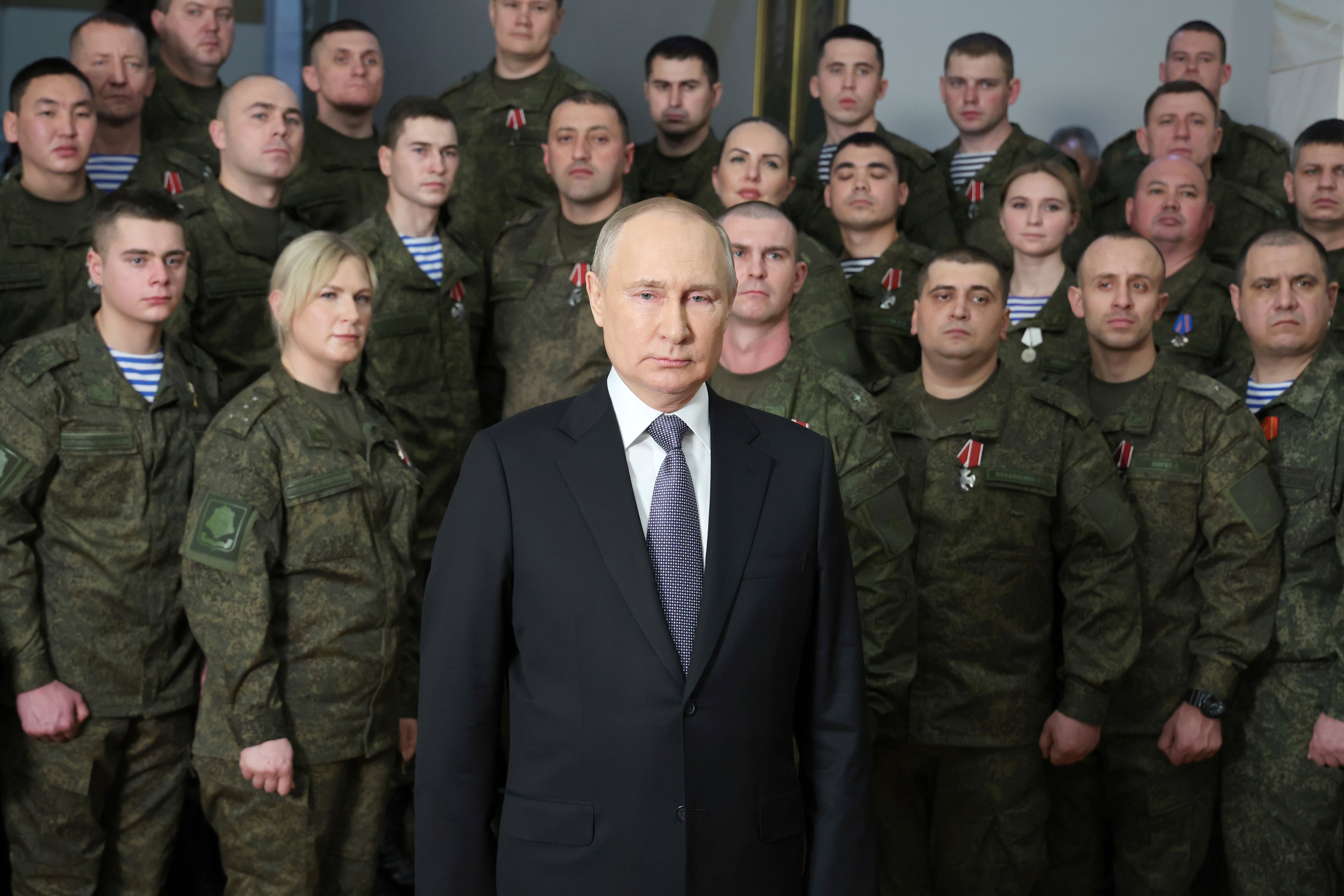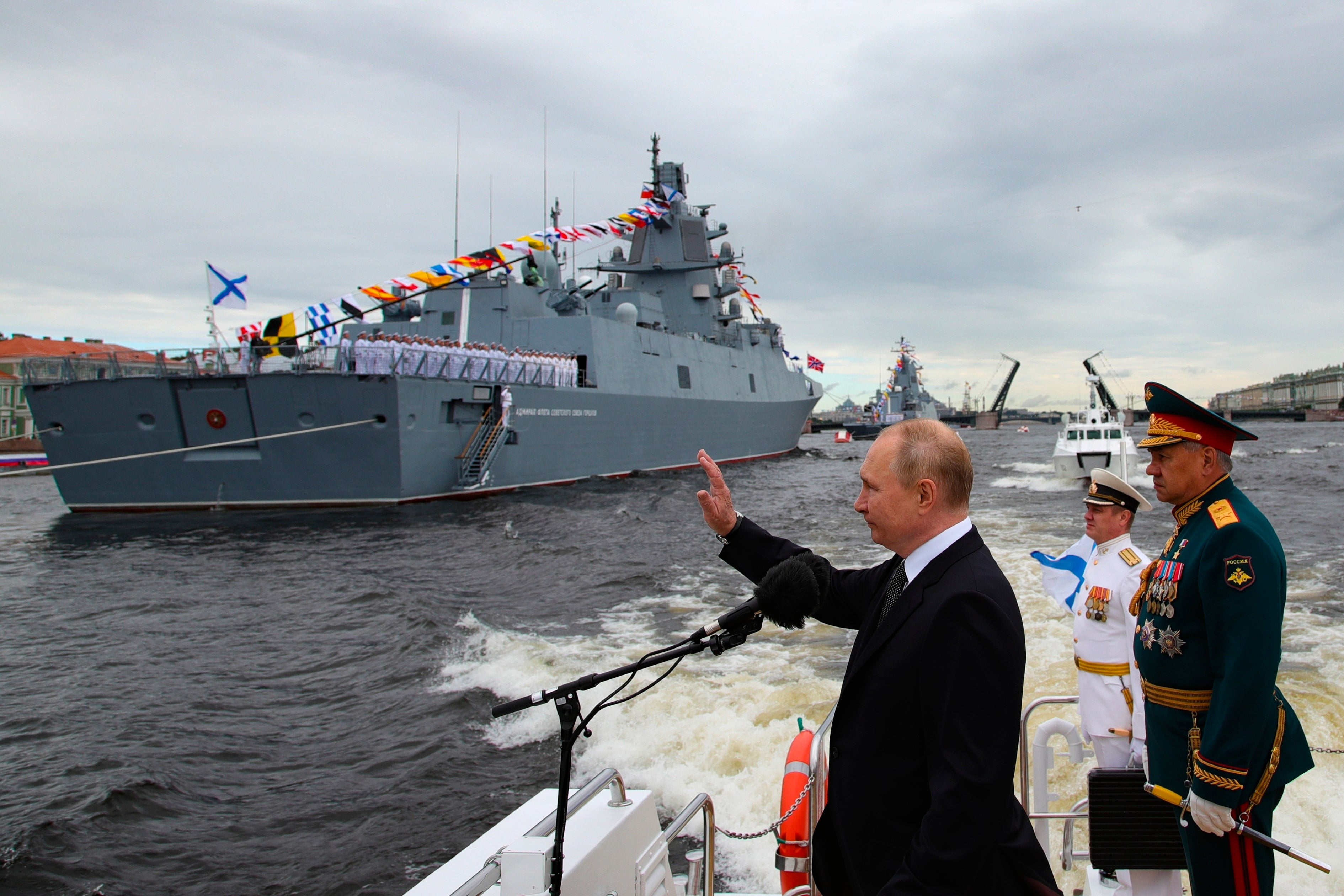
This time a year ago, it made perfect sense to Vladimir Putin to launch his invasion of Ukraine. That decision has often been described as irrational by people sitting outside the Kremlin, but given all the information Putin had at his disposal, it was a perfectly reasonable one.
That is if you believed – as Putin apparently did – in everything that Russian propaganda had been claiming.
That being: not only that Ukrainians were not a real nation but instead just frustrated and slightly inferior Russians yearning for liberation from the neo-Nazi clique that had seized power in Kyiv. Not only that, but Russia had an armed force fit for conflict in the 21st-century. Or at the very least, perfectly capable of undertaking a coup de main operation swiftly and successfully so there was no need to prepare for a protracted war. But above all, that there would be no significant reaction from the West. There can have been no clearer green light for Putin to move in.
But then it all went horribly wrong. Early local tactical success by Russia’s military in some areas weren't enough to overcome the colossal failures of intelligence and planning that doomed the operation to grind into the mud in the face of determined and effective Ukrainian resistance. Resistance that Russia, and a number in the West, had simply considered impossible. And so, a year on, the war continues.
You might have thought that the experience would inject a dose of realism into Putin’s calculations. But in his two-hour state of the nation address on Tuesday Putin laid out a view of the world that is as distant from reality as ever. It wasn’t just the long and familiar list of grievances against Ukraine and the West, accused of all the crimes that Russia itself is committing. Or the recital of Russia’s cherished fantasies about nuclear weapons or US “biolabs” for Ukraine.
It even extended into his lengthy soliloquy on how Russia’s economy is thriving despite war and sanctions. Putin was proud of Russia's reduced rate of unemployment. He didn’t mention that those unemployment figures are at a "historical minimum" in large part because of mobilisation and emigration – the numbers of people who have been killed at the front, and the numbers who have fled the country because they don't want to be.

The net result of this detachment from reality for the war is a simple one: it will continue because if Russia is losing, nobody appears yet to have told Putin.
There is no end in sight to the fighting, and there is also no end in sight to the long-running debate on what victory or defeat would look like for both sides. There’s a lot of discussion on how much Ukraine can actually achieve, and whether it is in fact possible to evict all of the Russian forces from the territories currently suffering under their savage occupation. But in a way, the definition of Ukrainian victory is less important for the long term than the concept of Russian defeat.
The future state of European security depends on the future condition of Russia. And the future condition of Russia depends on the outcome of the current war. That means there are many possible future Russias – but the only one that is capable of starting the long slow process of reassessing its place in the world is one that has suffered an unarguable, incontrovertible defeat in Ukraine.
That’s because anything short of clear defeat will not be sufficient to show President Putin, and Russia as a whole, that its decision to begin a war of colonial reconquest in order to roll back the clock to a time of Russian hegemony over its neighbours was a colossal mistake.

That means that any outcome to the war in Ukraine that leaves Russia with a perception of even partial success - measured in territory gained, without counting the cost in lives lost - nurtures the seed of future conflict. If Ukraine falls, Russia will turn its eyes to the next target, emboldened by victory.
If Ukraine is forced to negotiate ceasefire terms, this gives Russia the opportunity to turn the war into another frozen conflict – to be defrosted at a time of the Kremlin’s choosing – when Russia once again feels strong enough to assert itself and confident that it will succeed.
The one unchanging factor is Putin’s declared intent. In his Tuesday speech, Putin said the "whole architecture of international relations" was undermined by the US no longer respecting the Yalta and Potsdam agreements at the end of the Second World War the agreements that granted the USSR half of Europe. It's another lament for Moscow's lost domination over the east of the continent, and another indicator that Putin’s ambition to subdue the former imperial domains is still undiminished despite them being not just sovereign, independent nations but many of them also full-fledged members of Nato and the EU.
And that, in turn, means the arguments for full support of Ukraine to achieve the swiftest possible victory are not just moral but also practical. Providing Ukraine with the means to win the war will not only save lives; it will make all of Europe a safer place by setting back Russia’s ambition for the continent as a whole.
Keir Giles is a senior consulting fellow of the Russia and Eurasia Programme at Chatham House







